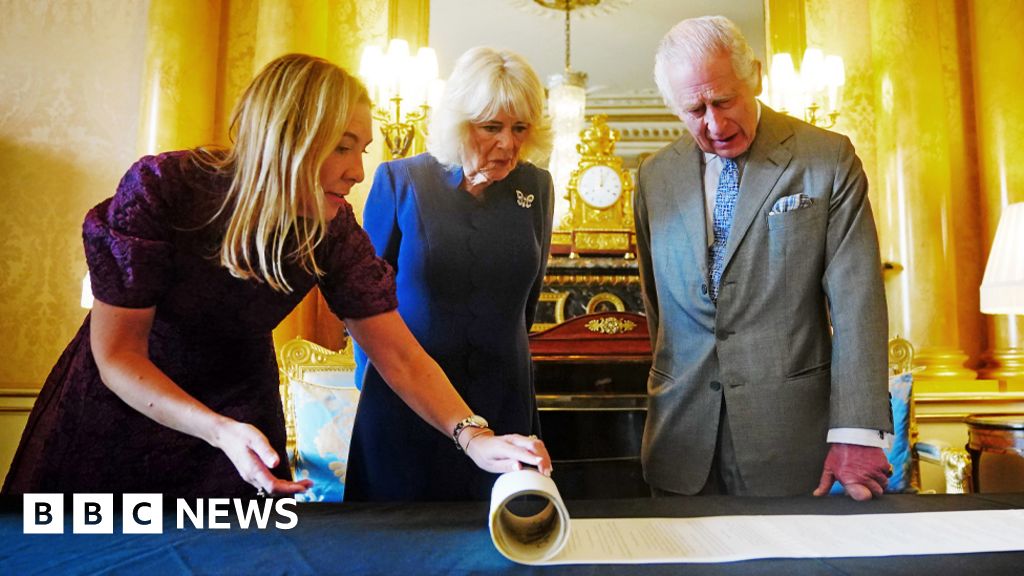A NURSE found out she had tuberculosis less than 24 hours before she passed away.
Carrianne Franks, 30, contracted the deadly Victorian disease while volunteering on an NHS ward in November 2020.
But she wasn’t told she’d been exposed to tuberculosis (TB) for months, delaying her diagnosis and contributing to her death, a damning report has found.
The previously healthy nurse sent a chilling 10-word text to her mum after she was finally diagnosed the day before she died, the Mirror reported.
It read: “Mum, they found out what I have. I’ve got TB.”
Carrianne was placed in a coma in intensive care shortly afterwards, so her family were unable to say goodbye before she died on August 27, 2021.
Read more on tuberculosis
TB is an infection usually affects the lungs that can be serious serious if left untreated.
It’s spread through close contact to someone with the disease, from breathing in droplets released when someone with an active TB infection coughs.
It’s also possible to have TB in you body without showing symptoms or being infectious – this is called latent TB.
Recent figures show that cases of the Victorian disease in England increased over 10 per cent last year – from 4,380 in 2022 to 4,850 in 2023.
A ‘catalogue of errors’
An RAF sergeant, Carrianne had worked as a flight nurse for 10 years and was on a three-year deployment at London’s Chelsea and Westminster Hospital when the Covid pandemic took hold.
An inquest into her death found that Carrianne was exposed to – and infected with – tuberculosis from a patient with active TB,
who was nursed on the unit where she worked in between November 23 and 24, 2020.
But the nurse wasn’t told that she’d come into contact with a TB patient.
“Carrianne was not an NHS employee, rather she had volunteered through the RAF to undertake a placement at an NHS hospital, to assist throughout the Covid-19 pandemic,” coroner Laurinda Bower explained in a Prevention of Future Deaths report.
“Carrianne was not classed by the hospital as a ‘close contact’ of the infected patient, so she did not benefit from contact tracing, a warn and inform letter, or any education on the signs of TB infection to look out in the coming months.
“By the time Carrianne became unwell with respiratory symptoms in June 2021, neither she, her GP, nor the RAF’s Occupational Health Department had been informed that she had been working on a hospital ward where a patient had tested positive for TB.”
The coroner ruled that the 30-year-old’s death might have been prevented had she and her doctors known.
She wrote: “It would have been of assistance to the doctors treating Carrianne to have known about her occupational proximity to a patient with active TB, as they would have conducted tests to seek to rule the condition in or out, and in this case, would have arrived at a diagnosis far sooner and in time to start treatment that would have prevented her death.
“The lack of knowledge of her heightened risk of TB because of occupational exposure to a smear positive case significantly delayed her diagnosis and treatment, which in turn contributed to her death.”
Carrianne’s mum Bev Franks said the coroner told the family that she would have survived if she’d been diagnosed with TB just two weeks before.
Instead, she said hospital staff assumed her daughter had Covid.
“They gave her Covid meds because the were convinced it was that, despite negative lateral flows and PCR tests. Those drugs lowered her immune system,” Bev, a schoolteacher, told the Mirror.
Carrianne’s dad Chris – a site manager – added: “It’s just so sad to talk about, she told her mum ‘I’m going to die’.
“They had loads of opportunities to save her life, the jury heard there were so many missed chances.
“It was a catalogue of errors but we have lost our daughter, they don’t realise the impact it has had on our family.”
Family’s plea
The coroner Ms Bower wrote that Carrianne was exposed to “a very aggressive form of TB from what seemed to be a rather transient exposure” to the patient.
Nursing staff exposed to diseases such as TB are supposed to get ‘Warn and Inform’ letter so they and those treating can be aware if they start showing symptoms.
But current National Institute for Health Care and Excellence (NICE) guidelines only require for a letter warning to be sent if staff are around sick patients for eight hours.
As Carrianne hadn’t been the ‘named nurse’ for the TB patient and had not been in “close contact for eight hours”, she didn’t receive a letter.
Bev called on NICE guidelines to be change to protect nursing staff in Carrianne’s position.
The mum’s plea was echoed by Ms Bower, who wrote: “I heard evidence from an expert who told me of cases of medical professionals contracting the condition, despite no known direct contact with the patient but having spent time in a corridor containing an air vent leading from the infected patient’s room.
“I cannot see a good reason for restricting the Warn and Inform letter process, rather than applying the same broadly to all staff who worked on the unit at the relevant time.
“Carrianne’s case highlights the importance of warning all staff of TB cases on their wards, so that if they do become symptomatic in the coming months, and it may be many months later, they will be equipped with the necessary information to share with their treating clinicians.”
A spokeswoman for United Lincolnshire Hospitals NHS Trust told the Mirror: “We would like to offer our deepest and most sincere condolences to the family and friends of Carrianne Franks.
“We hope that the response by the coroner in issuing a Prevention of Future Deaths Notice to national agencies will help to further raise awareness about tuberculosis.
“The management of respiratory illnesses including tuberculosis is a core knowledge area for respiratory specialists and the Trust ensures that this specialist team is available to other clinicians for advice and guidance.
“Physicians undertake annual continuing professional development which for respiratory specialists would include the management of respiratory illnesses and this is monitored through medical appraisal.”
A Chelsea and Westminster Hospital NHS Foundation Trust spokeswoman said: “We are deeply saddened by the loss of a valued and supportive member of the nursing team and we offer our heartfelt condolences to Carrianne’s family, friends and colleagues.
“We strive to provide the safest possible environment for our staff to work in and we have reviewed our TB policy and have taken actions to ensure that all staff are aware when they are working on a ward where TB patients are cared for.
“Our thoughts remain with Carrianne’s family and friends.”
Coroner’s concerns
Ms Bowery said Carrianne’s death highlighted the following issues of concern:
- That the current clinical and public health guidelines do not identify healthcare professionals as a group at heightened risk of TB exposure.
- That the current definition of ‘close contact’, thus triggering a contact trace or warn and inform letter, sets the bar too high for notifying NHS staff of the risk of exposure to TB.
- That there are insufficient education measures in place to inform NHS staff of the TB symptoms to looks out for, and the need to inform any assessing clinician of their
possible exposure to the condition in order to facilitate early diagnostic testing.
Symptoms of TB to know and how to protect yourself
TB is a potentially serious condition, but it can be cured if it’s treated with the right antibiotics
According to the NHS, the symptoms of TB include:
- A persistent cough that lasts more than three weeks and usually brings up phlegm, which may be bloody
- Feeling tired or exhausted
- A high temperature and night sweats
- Loss of appetite
- Weight loss
- Feeling generally unwell
There is a shot to protect you against tuberculosis called the BCG vaccine.
It’s given during childhood and is currently the most widely used shot globally.
It is no longer offered to secondary school kids in the UK and instead only targets young children deemed most at risk.
The NHS recommends it for the following groups:
- Babies who live in areas of the UK where TB is more common
- Babies and children who live with someone who has TB
- Babies and children who were born or lived in a country where TB is more common
- Babies and children whose parents or grandparents were born in a country where TB is more common
- People aged 35 and under who are spending more than 3 months in a country where TB is more common
- People at risk of getting TB through their work, such as healthcare workers who work with people who have TB

Sarah Carter is a health and wellness expert residing in the UK. With a background in healthcare, she offers evidence-based advice on fitness, nutrition, and mental well-being, promoting healthier living for readers.








